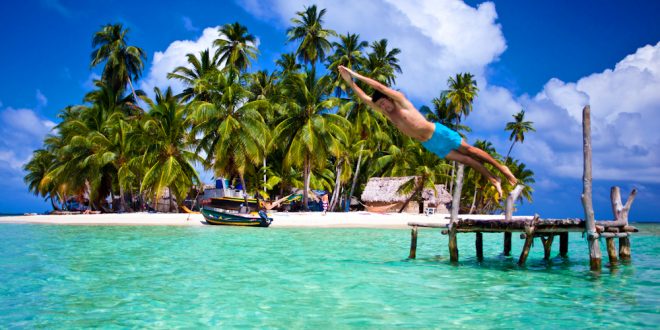Finding a delicate balance between the desire to explore and the need to protect our planet’s extraordinary biodiversity and cultural heritage poses a significant challenge. However, sustainable tourism offers a solution by combining conservation responsibility with the promise of exploration.
This concept is gaining recognition as the cornerstone of the future of tourism, driven by the urgency of climate change and the growing demand for ethical travel.
Explore the exquisite diversity and beauty of Costa Rica
Located in Central America, Costa Rica is a country teeming with ecological wonders. Its lush rainforests, vibrant coral reefs, and diverse fauna are safeguarded across more than a quarter of its landmass.
Costa Rica boasts around 5% of the world’s biodiversity, making it a paradise for outdoor enthusiasts. The country’s commitment to sustainable tourism is evident in the multitude of hotels and travel agencies that emphasize recycling programs, carbon offset initiatives, and active community engagement.
Through this sustainable model, visitors can explore breathtaking landscapes, immerse themselves in abundant biodiversity, and enjoy exhilarating activities such as ziplining, whitewater rafting, and wildlife observation, all while contributing to the preservation of this remarkable ecosystem.
Furthermore, Costa Rica’s dedication to an eco-conscious lifestyle and tourism sector is exemplified by its pledge to achieve zero emissions by 2050.

Embark on a journey through New Zealand’s varied landscapes
New Zealand captivates tourists with its diverse landscapes, ranging from serene beaches and lush vineyards to snow-capped mountains and captivating geothermal sites. The country is home to numerous eco-friendly hotels and tour operators scattered across its two islands, offering eco-conscious travelers the opportunity to connect with the locals and delve into their fascinating culture.
Many of these establishments provide chances to engage in sustainable farming, participate in regional conservation activities, and contribute to carbon reduction efforts by planting native trees. New Zealand’s tourism approach is deeply rooted in the Maori concept of “Kaitiakitanga,” which signifies a sense of environmental stewardship.
This philosophy reflects the country’s profound respect for nature and its commitment to preserving its unique ecosystems for future generations.
Discover the historical significance and natural splendor of Jordan
Nestled in the Middle East, Jordan is a land rich in historical significance and natural beauty. Offering a distinctive blend of history, culture, and scenic wonders, Jordan boasts the ancient city of Petra, a magnificent stone-carved marvel and one of the New Seven Wonders of the World, as well as the vast Wadi Rum desert, renowned for its breathtaking sandstone mountains and weathered gorges.
The chairman and CEO of Discovery Eco tourist, respected Samer Mouasher, notes that Jordan’s competitiveness in the global tourist sector stems from the country’s vast eco-tourism potential. Jordan’s potential as an eco-tourism destination has propelled its competitiveness in the global tourism sector. Recognizing this potential, the country has embarked on a journey toward sustainable tourism.
The Feynan Ecolodge, situated in the heart of the Dana Biosphere Reserve, serves as a prime example of this commitment. The lodge operates solely on solar energy, employs locals, promotes water conservation, and supports the use of locally sourced products. Visitors can fully immerse themselves in Jordanian culture and the natural beauty of the region while supporting these sustainable practices that benefit the local community.

Experience the Beauty and Serenity of Bhutan, the Land of the Thunder Dragon
Known as the Land of the Thunder Dragon, Bhutan stands apart from other nations, nestled in the Eastern Himalayas. With its verdant valleys, sparkling rivers, rugged mountains, and diverse wildlife, Bhutan offers a sanctuary of peace and unspoiled nature. As the world’s only carbon-negative country,
Bhutan is not only setting the benchmark for sustainable tourism worldwide but also aligning its tourism approach with the Gross National Happiness concept. This approach prioritizes socio-cultural and environmental well-being over economic progress. Bhutan’s tourism industry follows a “high value, low impact” philosophy. All visitors must use licensed tour operators, which ensures a boost to the local economy while minimizing environmental impacts.
This strategy extends to trekking trails, where strict regulations and visitor limits are in place to preserve the ecological balance. By adhering to these principles, Bhutan ensures that its natural and cultural treasures are protected for generations to come.
Uncover Slovenia: Where Nature and Culture Converge
Slovenia, a hidden gem in the heart of Europe, is where the Pannonian Plain meets the Karst and the Alps meet the Mediterranean. Recognized by the Green Destinations Organization as the world’s first green destination, Slovenia’s commitment to sustainability is evident throughout the country.
With approximately 60% of its land covered in forests, Slovenia’s government actively promotes the use of renewable energy sources, further solidifying its dedication to environmental friendliness.
The country is dotted with eco-friendly accommodations that prioritize minimizing environmental impact, sourcing food from local farmers, and preserving local cultural traditions. Visitors can engage in a wide range of activities while knowing that their travel leaves a small footprint and supports local communities.
In addition to respecting and preserving local cultures and the environment, sustainable tourism also makes financial sense by boosting regional economies. This revolutionary approach to travel is no longer an option but a necessity for the preservation of our shared history and the sustainability of the tourism industry.
Let our future travel choices demonstrate a profound respect for the invaluable natural and cultural treasures of our world. Let us embark on journeys that leave only faint traces and lasting memories, traveling sensibly and embracing endless learning along the way.



